Premium Only Content

'The Shape of Things to Come' (1933) by H G Wells
The Shape of Things to Come (1933) by H.G. Wells is a speculative, futuristic novel presented as a fictional history. The book chronicles humanity's trajectory from the 20th century into the 22nd, portraying a dystopian world that ultimately evolves into a utopian society. It reflects Wells's vision of technological progress and its social consequences, with a blend of optimism and caution.
The novel is structured as if it were a historical account based on dreams experienced by a man named Dr. Philip Raven. Raven's visions encompass key world events over two centuries. Key elements include:
1. Collapse of Civilization:
The novel begins in the aftermath of World War I, exploring the economic, political, and social chaos that ensues globally.
A devastating second world war and a subsequent global pandemic exacerbate humanity's decline. The resulting collapse of traditional nations leads to widespread anarchy and suffering.
2. Rise of a Technocratic Elite:
Amid the chaos, a new ruling class of scientists and engineers, referred to as "The Air Dictatorship," emerges.
Using advanced technology, this elite group gradually stabilizes the world, suppressing nationalism, war, and outdated religious institutions.
3. Transformation into a World State:
The Air Dictatorship evolves into a World State, prioritizing reason, science, and planned progress.
The rulers implement sweeping reforms, including the abolition of private property, a focus on education, and the establishment of a universal language.
4. Challenges and Ethical Questions:
The novel delves into the moral dilemmas of wielding absolute power, exploring whether authoritarianism can be justified for the greater good.
Resistance from traditionalists and remnants of the old order poses challenges to the World State's vision.
5. Utopian Future:
Over time, humanity transitions into an egalitarian utopia characterized by harmony, technological innovation, and intellectual enlightenment.
The novel concludes with a hopeful vision of a unified, peaceful, and progressive world.
Wells uses the narrative to critique the failings of his contemporary society, particularly its reliance on nationalism, militarism, and irrationality. The book also reflects his belief in the transformative power of science and rational planning, though it raises complex questions about the ethics of centralized control.
-
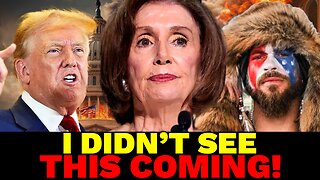 35:03
35:03
Stephen Gardner
2 hours ago🔥JUST NOW: Trump JUST SHOCKED Congress with new DEMAND!!
26.4K25 -
 LIVE
LIVE
checkmate7_7
3 hours ago $0.32 earnedStarting over. | !GUILDED
110 watching -
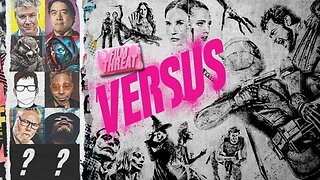 LIVE
LIVE
Film Threat
7 hours agoVERSUS: BEST & WORST OF 2024! SQUID GAME SEASON 2! JANUARY SUCKS! | Film Threat Versus
131 watching -
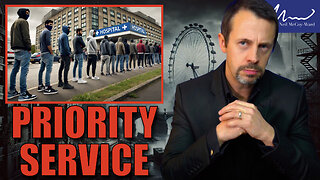 18:14
18:14
Neil McCoy-Ward
10 hours agoThis Is Absolutely Outrageous!!! (The UK Gov Have Betrayed Their Citizens...)
5.11K10 -
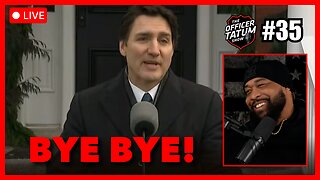 1:56:15
1:56:15
The Officer Tatum
4 hours agoLIVE: Trudeau Resigns, Interview w Former DNC Fundraiser Lindy Li + MORE | Officer Tatum Show EP 35
21.3K12 -
 1:51:31
1:51:31
The Quartering
5 hours agoTrump HUMILIATED Trudeau Into QUITTING, Cybertruck Bomber Story Gets Weird, X Censorship & More
105K29 -
 1:43:39
1:43:39
Tucker Carlson
4 hours agoBilly Bush: The Infamous Trump Tape, Secrets of Corporate Media, & Megyn Kelly v. Harvey Weinstein
136K73 -
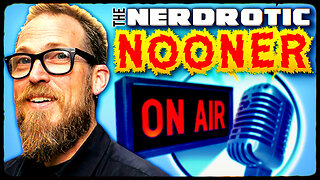 2:08:29
2:08:29
Nerdrotic
6 hours ago $5.86 earnedHappy January 6th | FNT Square Up - Nerdrotic Nooner 455
78.3K12 -
 1:39:55
1:39:55
Jesús Enrique Rosas
5 hours agoEp. 55: Trudeau RESIGNS, Starmer is SHAMELESS, Biden's DISGRACE, Kamala IGNORED and MOAR!
43.4K11 -
 1:10:22
1:10:22
MTNTOUGH Fitness Lab
5 hours agoBorder Patrol Vs Cartels With Vincent "Rocco" Vargas: The Whole Story Behind the Crisis
21.9K2